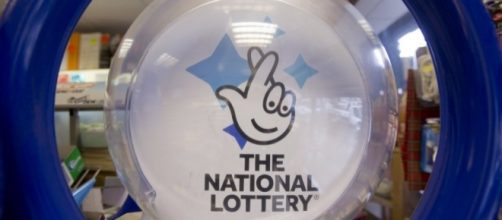It has been going for 23 years but have the people of the United Kingdom grown tired of the National Lottery? Despite a raft of advertising campaigns, game spin-offs and bigger prizes, is the Lottery losing the pull it used to have on the average everyday person?
In November 2016, the BBC confirmed that one of the staples in the Saturday night schedules would be dropped, with the live draws moving onto iPlayer only from last month. So I ask the question, has it lost its all-round appeal?
A huge launch
It was very different in 1994 when the National Lottery was launched.
Operated by Camelot, as it is today, the Lottery set-up was one of the major successes of John Major's Tory government. Many good causes have benefited from the Lottery. UK Sport has significantly been boosted with performances from Team GB's athletes improving at every Olympics since 1996. This culminated in finishing second in the medals table at the Rio Olympics last summer with Taekwondo one sport whose progress has been helped by Lottery funding.
The first draw took place on Saturday, 19 November 1994. For the record, the opening night's numbers were 30, 3, 5, 44, 14 and 22 and the bonus ball was 10. Seven tickets shared the very first jackpot. When it launched, Bill Clinton was US president, Newcastle United lost top spot in the Premiership after losing 3-2 to Wimbledon and Pato Banton was no.1 in the UK music charts with 'Baby Come Back.'
Between 1998 and 2016, a total of 18 gameshows ran in conjunction with the Lottery on a Saturday evening, including Jet Set and Winning Lines.
Since the decision was made by the BBC to drop the draws, it is unclear what will happen to current programmes, Win Your Wish List, In It To Win It and Who Dares Wins.
Plenty of change
Camelot has had to deal with falling sales in the past. They actually renamed the main draw Lotto in 2002 in a combat to revive general interest. Several spin-off games have been created too. Only Thunderball and EuroMillions though have stuck around.
They have tried to add better and bigger impacts to the draw procedure. Lotto now has 59, rather than 49 numbers to choose from and increased the price per line to play at £2 rather than the initial £1 to play. The negatives mean it is far more costly to play and even harder to win the jackpot.
There are benefits. Matching three numbers now wins £25 and that's enough for a meal for two at a pub restaurant nowadays but the odds of winning the actual jackpot are now a staggering 45,057,474/1. There is now much more chance to win decent money in football accumulators and backing outsiders in major horse racing events such as The Grand National.
In 2015, Camelot launched a huge advertising campaign, trying to encourage people to play, otherwise less than popular celebrities could win and see their dreams come true. Katie Price, Noel Edmonds and Piers Morgan were among the faces and whilst they certainly produced a bit of humour to the commercials, it probably didn't provide the results Camelot would have wanted in getting people attracted to play Lotto again.
It also has competition from the Health Lottery, which is cheaper to play (£1 a line) and has a two-minute draw slot on a Saturday night on Channel Five. Naturally though, the Health Lottery's appeal is not as strong but for keeping a budget in place, is a cheaper and viable alternative.
Still a popular guise
In the 23 years the National Lottery has been in UK society, it has evolved and enhanced. Whilst it might have alienated the initial target audience, there is still a market out there for it. Let's face it, playing Lotto is still one of the most common and popular forms of gambling in the UK. You know the chances of winning are slim but sometimes, the risk is so low, it is worth it.
There is still a popular guise to the Lottery but it isn't the same as it once used to be. It was always going to change with time but it is a shame to see it not a cornerstone now of the BBC's Saturday night offering.

